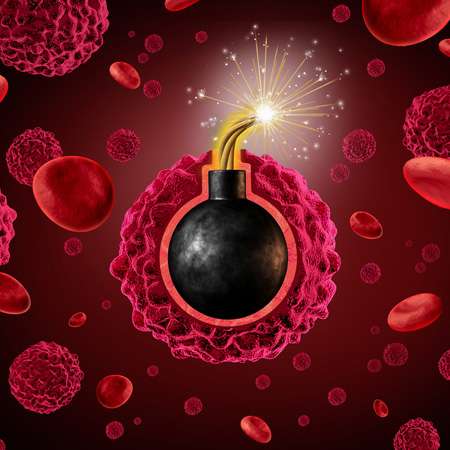Heart and liver disease linked to antioxidant shutdown

A protein that should help fight infection and keep us healthy may be targeted for treating devastating illnesses like heart and liver disease, according to a new Rutgers study.
In research published in Molecular Cell, Rutgers scientists discovered that a protein (p62), which is supposed to act as an antioxidant to prevent cell damage, was not working efficiently in laboratory mice with liver and heart disease that mimicked these conditions in humans.
This caused oxidative stress – too much oxygen that damages healthy cells – and allowed the release of harmful molecules, called free radicals, which resulted in serious illness. One of the body's first lines of defense, the cells antioxidant response system is supposed to prevent these harmful invaders from causing a domino effect and damaging other cells.
Wei-Xing-Zong, a professor in the Department of Chemical Biology in the Ernest Mario School of Pharmacy and leader of the study, said the damage occurred because another protein, (TRIM21) – which should activate the body's response system to fight off bacteria and virus – did the opposite in these seriously ill mice and shut the antioxidant protein down, preventing it from doing its job.
"The (TRIM21) protein exists naturally in our body; without it, we could easily succumb to other manageable infections," said Zong. "But this study has shown us that when we run into severe pathological conditions like heart and liver disease it would be more beneficial to inhibit the TRIM21 protein because it is preventing the cell from protecting itself against damage."
In the Rutgers study, Zong and lead author Ji-An Pan, a scientist in his laboratory, looked at liver and heart damage in laboratory mice and found that the mice in which the TRIM21 gene was inactivated suffered little heart or liver damage when put through the same laboratory procedures used to produce tissue damage in mice with the gene.
"The hearts and livers of the mice without the TRIM21 gene seemed to be well protected which was opposite of the mice with the gene," said Zong. "We believe this evidence is a truly important step to determining how to effectively treat these conditions in humans."
Heart disease is the leading cause of death in the United States while one in 10 Americans has some form of liver disease. Rutgers scientists said this study indicates how critical it is to carefully control oxidative stress – which can also lead to neurodegenerative diseases like Parkinson's and Alzheimer's, chronic fatigue syndrome, cancers and gene mutations as well as liver and heart disease – so that cell or tissue damage doesn't occur.
They believe that drugs could be developed that would reduce or stop the activity of the protein that is causing damage and preventing the antioxidant response from occurring.
"These exciting new results suggest that drugs that reduce the activity of TRIM21 could be highly effective new tools for the treatment of conditions that are driven by high oxidative stress, including liver and heart disease," Zong said.
More information: Ji-An Pan et al. TRIM21 Ubiquitylates SQSTM1/p62 and Suppresses Protein Sequestration to Regulate Redox Homeostasis, Molecular Cell (2016). DOI: 10.1016/j.molcel.2016.02.007

















